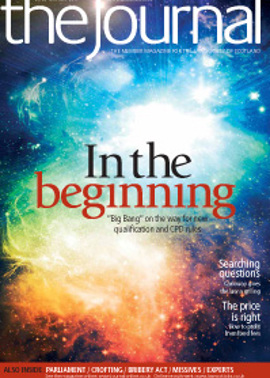Quinn Direct - when to intimate?
It has come to the attention of the Insurance Committee that some concern has been raised as a result of obiter remarks in the recent case of Quinn Direct Insurance Ltd v The Law Society of England & Wales [2010] EWCA Civ 805.
In brief this case involved an attempt by Quinn to have access to the entire file and database of a firm which had in effect been placed in the English equivalent of a judicial factory. Unfortunately, although the case was fact specific and related very much to English legislation and English indemnity arrangements, reference was made in passing that a solicitor may be prohibited from intimating circumstances (as opposed to an actual claim) to their indemnity insurers, as this could potentially be classed as a breach of legal professional privilege and client confidentiality.
For the avoidance of doubt this issue does not arise in the case of an actual claim being made by a client, as it is accepted that in such an event the client is implicitly waiving any rights to confidentiality as a result of taking such action. The concern expressed was specifically in relation to circumstances only, where solicitors are required by the terms of their indemnity insurance to relay facts to their insurers regarding the possibility of a future claim without the authority, express or implied, of their client.
Whilst we believe that to date this has never actually caused any practical difficulty, the issue has been raised with the committee. Our view is that the points which have been raised do not alter the requirement that circumstances are intimated to Marsh as Master Policy brokers whenever necessary. It is of course a requirement of Master Policy cover that circumstances are intimated timeously, and it would be a matter of substantial regret to all concerned if unnecessary caution were to prevent timeous intimation in breach of policy conditions.
The committee would however suggest that if there is a concern about disclosing to insurers what may be confidential information or breaching legal professional privilege, this can be dealt with by “anonymising” the intimation by removing reference to specific clients or other identifying factors. It would be necessary however for the intimation to provide the firm’s file/matter reference as an identifier to enable the insurers to be satisfied that the subject matter of a claim that subsequently arises is the same as the subject matter of the earlier intimation of circumstances. If any firm does have concerns in this regard they should feel free to contact Marsh informally to discuss matters in more detail.
As always, there may also be the possibility of dealing with such issues within a firm’s terms of engagement by providing for any client (by agreeing to the terms of business) waiving confidentiality/privilege in such circumstances. The committee does feel however that there are issues regarding both the effectiveness and desirability of such an approach at this time and does not recommend it.
Finally, it should be noted that the lead insurers, RSA, are well aware of the terms of the Quinn case and we understand that it is not their intention at this time to seek any modification to Master Policy provisions regarding disclosure of circumstances.
In this issue
- Experience not to be missed
- Call in the experts
- Planning to deliver
- Stars of the future
- Registered Paralegal Scheme hits the mark
- CPD: a personal quest
- Wha's like us?
- Holyrood: a verdict
- Public ethos
- Power in name only?
- From the Brussels office
- Minority voices
- Law reform update
- Quinn Direct - when to intimate?
- Name your price
- Ask Ash
- Communication breakdown - a major risk issue
- Interested parties
- Support from afar
- Plus ça change?
- Where the state has to stop
- A NEST egg?
- Scottish Solicitors' Discipline Tribunal
- Website review
- Book reviews
- Above board
- Ruaig an Fhèidh
- The price of breach






